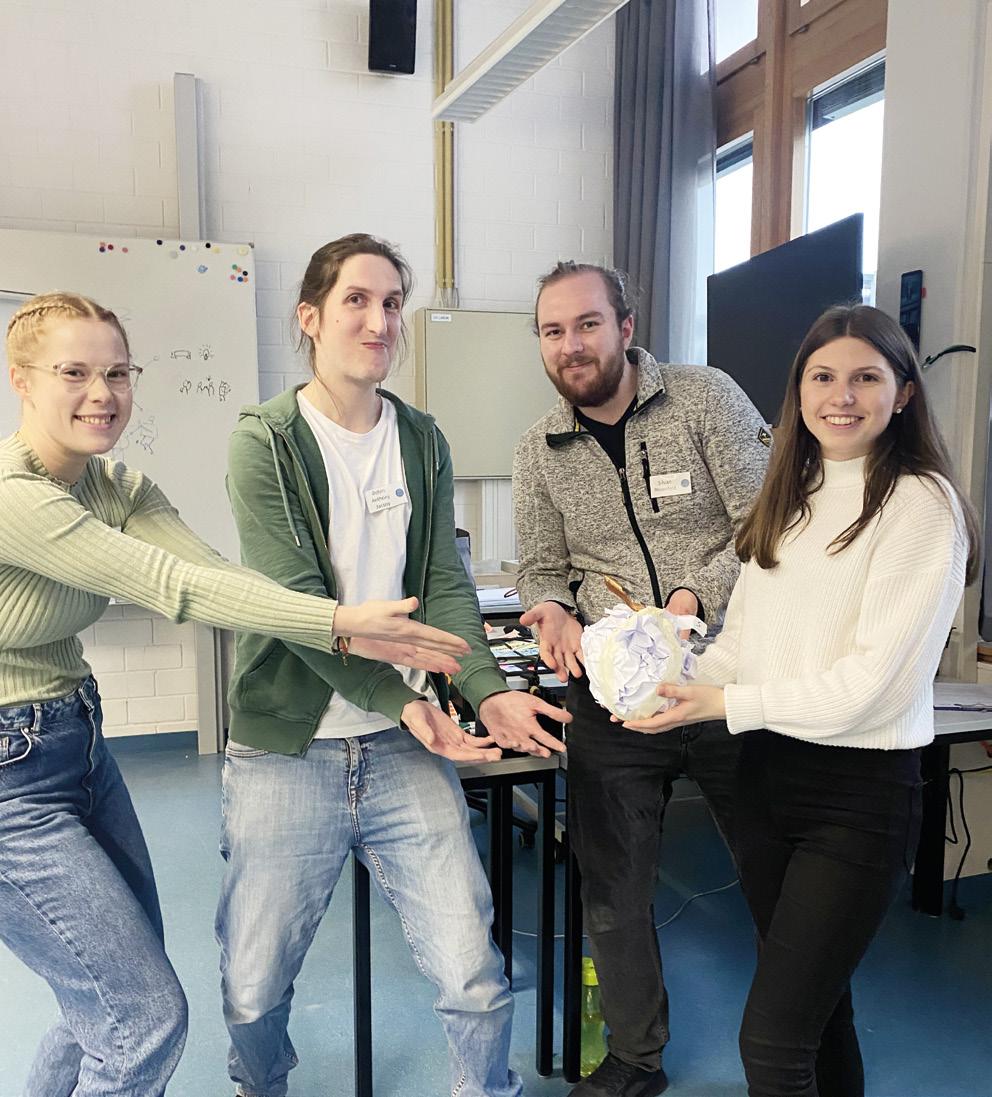
1 minute read
Fit for the future
from "foresee - recognising signs, devising solutions, shaping the future", Annual Report of H-BRS 2022
SKILLS equips students for later – and sets new standards in e-examinations
Stress, being overwhelmed by demands, obstacles – commonplace both during studies and later in professional life. Hochschule BonnRhein-Sieg counteracts this with Future Skills Training as part of the SKILLS project (“Steigerung der Kompetenzorientierung im digitalen Lehren und Lernen” – Increasing competence orientation in digital teaching and learning). “Future skills are competencies that are vital for success as a student and later on in a career. These include digital competence, self-management competence and resilience,” says Christine Syrek. The professor of business psychology leads the Future Skills Training sessions together with fellow professor Patrizia Ianiro-Dahm. “The students learn how to reduce stress, approach challenges in a relaxed way and switch off.” The free training sessions are open to H-BRS students from all departments and degree programmes. They are also well received. More than 250 students have already participated in the Future Skills Training.
By students for students
The training sessions take place in the form of 7-hour workshops. A special feature of the training since 2023 is that students themselves equip their fellow students for their studies and professional life. Participants develop future skills in interactive sessions with modern learning methods (e.g. gamification). “Students who participate in the training sessions can benefit from the experiences of their peers, who are much closer to them in terms of daily life routine and challenges than most lecturers can be,” says Ianiro-Dahm. Great interest has been shown in leading the workshops – 17 students have already completed their training as future skills trainers.
Examinations of the future
Susanne Kundmüller-Bianchini, deputy director of the library, is in charge of the second SKILLS sub-project, which is also very forward-looking: the further development of digital examinations. “So many different things are possible, from a purely digital free-text examination to complex task constructions, from completely manual to fully automated evaluation,” explains Miriam Wegener from the e-Assessment Team. The university is pressing ahead with the topic and started a pilot phase in 2021/22 with the Dynexite examination system developed by RWTH Aachen University. Demand is steadily growing. “At least one lecturer from each department has already conducted one or more examinations via Dynexite,” says Jasmin Breuer from the e-Assessment Team. Students also see advantages. “I prefer e-exams to paper exams. They’re closer to the actual working conditions and also clearer, more environmentally friendly and more modern,” reveals one student.
More:










